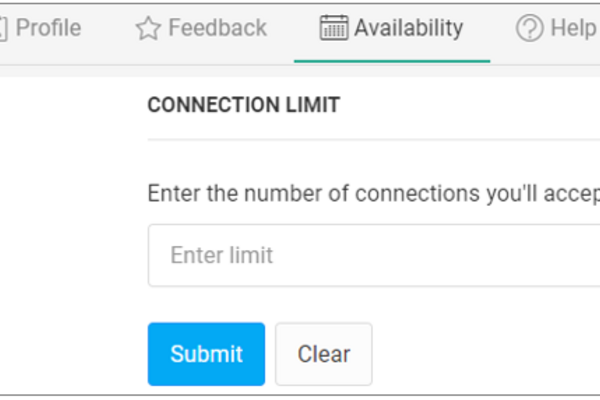
Mentorship Program
The Department of Psychiatry values mentorship given its role in career development, career satisfaction and wellness. It is strongly recommended to have at least one primary mentor, particularly in the first five years of appointment.
The Department is committed to assisting each faculty to find a primary mentor, and also offers a number of mentorship groups or communities of practice to support development for specific academic roles or for peer support related to identity.
How to sign up for our online mentorship platform (Qooper)
Step 1 - Create a profile on Qooper
Create either a mentee or a mentor account on Qooper by answering a few questions outlining your scholarship and professional development interests and demographics.

Tip: If you are a mentor who does not currently have availability to take on new mentees, you can set the "Connection Limit" in your profile to 0.
Step 2: Complete the baseline survey
A baseline survey link will be included in your Welcome email from Qooper. Please complete the survey to help us understand participant satisfaction and further refine our mentorship program.
Step 3: Find and "connect" with your mentor / mentee match
For faculty who have an existing mentor or mentee, please ensure that you both have Qooper profiles and are "connected" on Qooper. This will allow the Department to track and acknowledge the mentorship taking place, and allow pairs to access useful resources under the "Tools" and "Groups" sections.
For mentors accepting new mentees, sit back and wait! The matching process will be mentee-driven.
For faculty looking for a mentor, we recommend taking 2-3 months to find a primary mentor (ie. someone who is available and agreeable to being your primary mentor in your specified areas of interest). Mentees may take a month or two to meet with potential available mentors to select one primary mentor (though we recognize that many faculty have several mentors to support various components of their work or personal goals).
There are a few strategies to find potential mentor matches:
1. Look through the profiles of the "Suggested Mentors" generated by Qooper's algorithm
2. Search the mentor directory for specific skills or interest areas.
3. Mentees who still have questions or are unable to find a suitable match should contact psych.mentorship@utoronto.ca. We will explore your interests and needs with you and augment our online matching feature to make additional suggestions for potential mentors (a best match or ideal mentor may not be registered in Qooper yet).
Faculty Mentorship Groups
To support the primary mentor/mentee model, the Department is further supporting career development and wellness through group communities.
Both junior and senior faculty are welcome to register for groups on a rolling basis.
Explore the Department of Psychiatry faculty mentorship groups, including:
- Clinician Scientists & Investigators
- Clinician Teachers
- International Medical Graduate (IMG) faculty
- Status-Only faculty
- Women & Underrepresented Genders (UPWURD)
Frequently Asked Questions
I am a mentor. Should I still sign up on Qooper if I currently do not have any availability to take on any new mentees?
Yes, you should register on Qooper as a mentor.
Under your Profile > Availability > Connection Limit, you can enter the number of connections from mentees that you will accept. (eg. enter "2" if you have space for two new mentees).
If you already have existing mentees, please ensure that you both register on Qooper and "connect" with each other.
What if I already have mentor(s) or mentee(s)?
We encourage all existing mentor/mentee pairs to create Qooper accounts and "connect" with each other under the Mentoring tab.
If a mentor has multiple mentees, they should have "connections" with all of their mentees.
This will allow the Department to track and acknowledge the mentorship taking place, and allow pairs to access useful resources under the "Tools" and "Groups" sections.
I've signed up on Qooper. Now what?
For mentors accepting new mentees, sit back and wait! The matching process will be mentee-driven.
For faculty looking for a mentor, we recommend taking 2-3 months to find a primary mentor (ie. someone who is available and agreeable to being your primary mentor in your specified areas of interest). Mentees may take a month or two to meet with potential available mentors to select one primary mentor (though we recognize that many faculty have several mentors to support various components of their work or personal goals).
There are a few strategies to find potential mentor matches:
1. Look through the profiles of the "Suggested Mentors" generated by Qooper's algorithm
2. Search the mentor directory for specific skills or interest areas.
3. Mentees who still have questions or are unable to find a suitable match should contact psych.mentorship@utoronto.ca. We will explore your interests and needs with you and augment our online matching feature to make additional suggestions for potential mentors (a best match or ideal mentor may not be registered in Qooper yet).
What else can I do in Qooper after I have matched with my mentor/mentee?
Tools: Once you've been paired with a mentor and mentee, please take a look through the Tools tab for useful resources including:
- A mentorship contract that outlines expectations and a contract length
- Templates to track career goals, publications, and professional contacts
- Templates to keep record of mentoring meetings
Over time, we will be providing additional evidence-based tools and guidelines for effective mentorship.
Mentorship Groups: To support primary 1:1 mentor/mentee mentorship, the program is further supporting career development and wellness through group communities.
